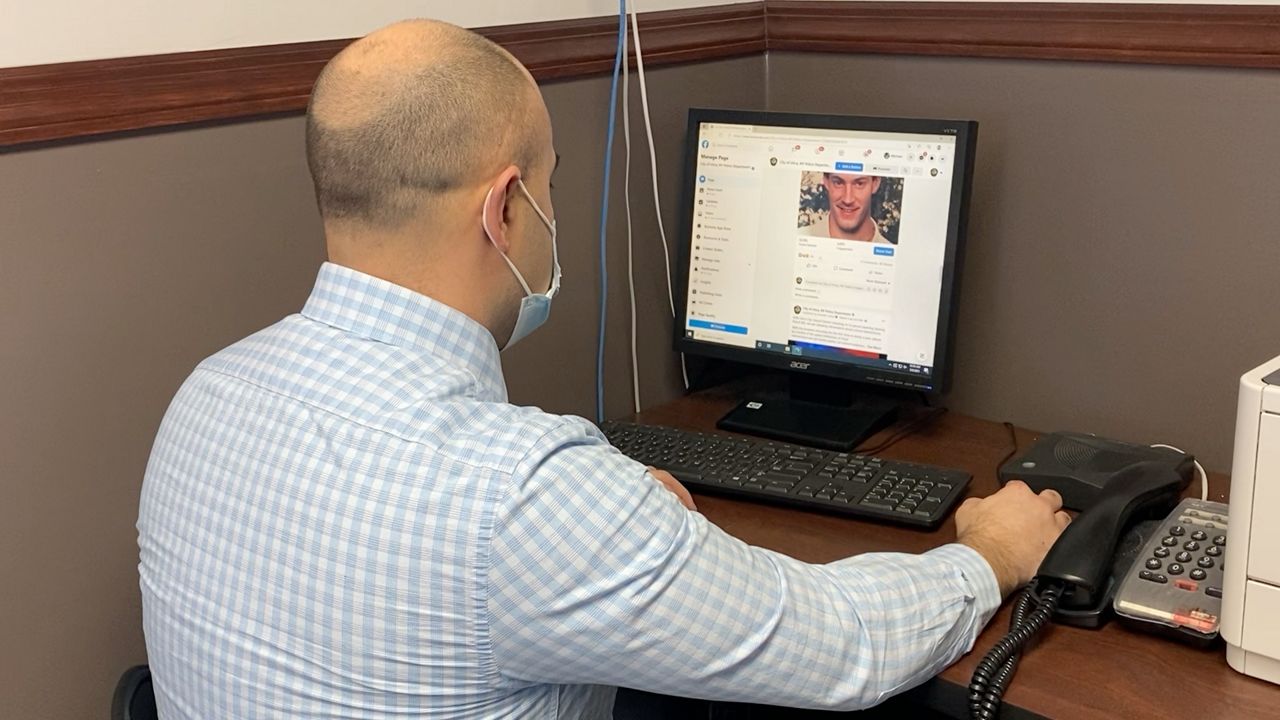As the war in Ukraine continues, many tech-savvy hackers are finding ways to help by joining the world of cyberwarfare.
“It is a front line, and you may not be firing a gun, but you are engaging in what would amount to cyberwar,” said Andrew Carr, noted cybersecurity expert and director of graduate programs at Utica University.
Miles from where Ukraine is fighting Russian invaders, the hacking community from around the globe is trying to help.
A large part of the effort is conducted through distributed denial-of-service attacks, or DDOSing.
“Essentially, the idea of it is flooding a particular computer system with lots of information so it can't perform its intended function,” said Carr. “If it's overwhelmed by all this erroneous information, it can't communicate with other systems and it's essentially just a dead box at that point.”
He laid out how the attacks prove useful.
“They're trying to perform these attacks on known-Russian infrastructure in order to limit or stop their ability to distribute propaganda media or perform battlefield communications, or whatever it might be,” Carr said.
Some of the hacking community's missions have to be a bit outside of the box to be effective.
“Taking over review sites in order to post updates on the war instead of restaurant review0 so that they can bypass the filters on social media that the Russian government is using,” Carr said.
Spectrum News 1 contacted some members of the hacking community, but Carr explained why reporters don't often see or hear from them.
“Plain and simple, that is not something that typically would be OK. Given the situation in Ukraine and given what Russia is doing, it's one of those where sometimes the ends justify the means,” said Carr. “And I think our government is probably going to look the other way when it comes to this.”
So an ocean away, why fly in the face of the law? Take any risk attacking Russia?
“Everyone is on the same page that what Putin is doing is abhorrent, and if he wants to keep trying to impose his fascism in the modern age,” said a source that asked to remain anonymous. “The rest of the world will use modern advancements to shut him down.”
Hundreds of thousands of people have volunteered to assist in the effort, and sometimes that can become chaotic and counterproductive, but they say it's critical.
“There are more advanced individuals, though, that are getting involved in more invasive attacks to actually enter Russian systems, steal information and try to regain some counter-intelligence,” said Carr. “So it depends on their skill level. But I think everyone that has joined up to try and assist does have good intentions.”
It's also paramount that those jumping in know exactly what they're up against. Russia has just as strong cyber defense and countermeasures as they do attack capabilities.
“Maybe they use the telegram account that they already had that is linked to them. Maybe they use a username that can be easily identifiable with another username they use on something else,” he said. “If people don't understand that there are likely Russians embedded in that telegram chat, they're kidding themselves.”
It's not without risk, but Carr believes it's essential.
“I think that we have to stop them essentially, at all costs. We can't let this continue,” Carr said. “This is grotesque and we need to do what we can to stop this from happening.”
For now, the front lines rage, on the ground and in the clouds..
“It is still war just behind a computer, rather than behind the rifle,” Carr said.
With his official capacity at Utica University, Carr said he will not be taking part in the attacks, but will know how to monitor them and is cheering the effort.










